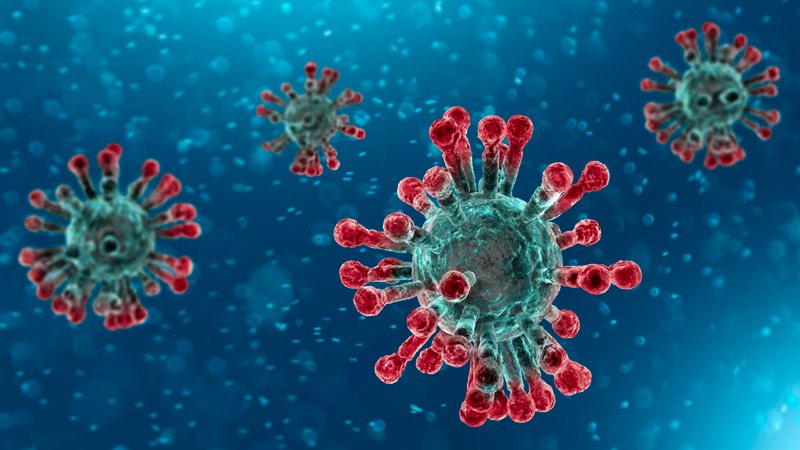As medical experts continue to learn more about the coronavirus, they’re studying its effects on children. While the illness typically produces weaker symptoms compared to older patients, it’s believed the virus is causing a new reaction in some kids.
Dr. Eveline Wu works for UNC Health as a Clinical Assistant Professor of Pediatric Allergy, Immunology and Rheumatology. She says while there have been many children who have tested positive for COVID-19, only three have been hospitalized at the UNC Medical Center in Chapel Hill from the virus.
But Wu, who is an expert in primary immunodeficiencies, says there’s a new illness on doctors’ radars.
“There have been increasing reports of children presented with what is now being called this pediatric multi-system inflammatory syndrome,” she says.
The illness inflames multiple organ systems. Common symptoms are fever, vomiting, abdominal pain and drops in blood pressure. Similar inflammatory illnesses can cause rashes, swollen glands and further heart issues.
Wu says such symptoms and sickness have been seen before, but there are indications causing medical experts to believe this sickness is tied to the novel coronavirus. Many cases are coming from regions experiencing major outbreaks.
“We’re seeing a cluster of cases in areas like New York that have had a high burden of COVID-19,” says Wu. “The timing of these cases are during or coincident with this pandemic.”
While not every child with the inflammatory syndrome has tested positive for COVID-19, Wu says many have. She says it leads her to have a high suspicion the two are related, likely with the inflammation being caused by the body responding to the coronavirus.
“Sometimes what can happen during this cascade of events [as the body responds],” Wu describes, “if it’s not tightly controlled, it can have untoward effects. We think that the syndrome more has to do with our immune system’s reaction to fighting the virus as opposed to the virus itself.”
Dr. Stephanie Davis is the chair for UNC’s Department of Pediatrics and is an expert in pediatric pulmonology. She says no cases of pediatric multisystem inflammatory syndrome have been reported in the health system yet.
“We have not seen that at UNC at this point,” she says, “but it is definitely something we’re really beginning to understand.”
Davis does say, though, medical experts are still learning just how COVID-19 affects children. She says it’s very likely despite them not being affected the same way as adults, children still could pass the coronavirus on to others. The virus is most infectious when first contracted, but people typically don’t show symptoms until later on into the illness. With children showing milder or no symptoms, though, Davis says it’s even more important to be vigilant with health.
“There have likely been a number of children who have had COVID-19 that no one knows actually had it because they’re asymptomatic,” she says. “There’s really no way for parents to know.”
When it comes to protecting any spread within the home or cleaning up after a child who might have been exposed, Davis gives the same advice health officials are giving adults.
“At home,” she says, “basically good hand-washing, wiping down surfaces and keeping things clean are the most important things the parents can do.”
Davis says while taking steps to prevent any infection is important, parents should not be concerned about bringing their children to the hospital or doctor if they’re sick. She says hospitals and clinics have been set up in a safe manner to protect patients and visitors.
“Certainly we do not want children presenting more sick [at the hospital] than they would have because of a delay,” says Davis. “And we have seen that here at UNC.”
For more information on how UNC Health is responding to COVID-19, and to get additional resources from the health system, visit its coronavirus web page.
Chapelboro.com does not charge subscription fees. You can support local journalism and our mission to serve the community. Contribute today – every single dollar matters.
Related Stories
‹
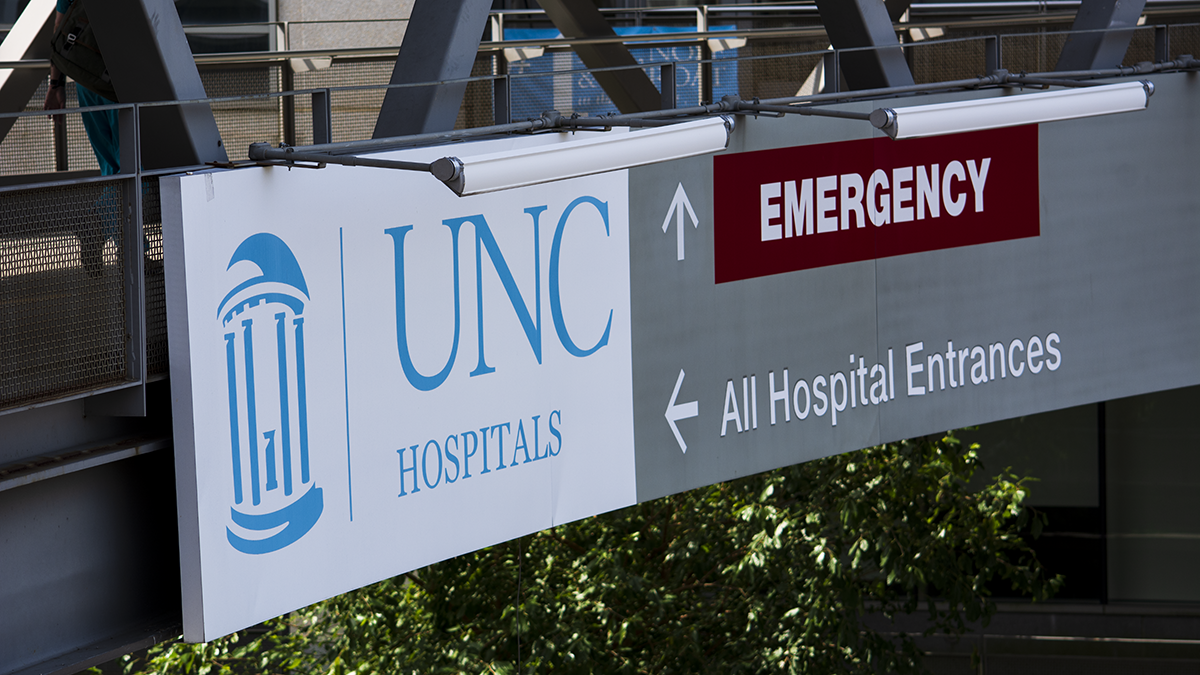
UNC Health Emergency Departments Working Together for Pandemic ResponseThe emergency departments at many hospitals around the country have shifted their efforts to help fight the COVID-19 outbreak, including those of UNC Health. Compared to other areas of hospitals, emergency departments are relatively quiet right now with many people staying at home. Dr. Abhi Mehrotra, who is overseeing UNC Health’s emergency department response to […]

UNC Health: 12 Employees in Chapel Hill Test Positive for COVID-19UNC Health recently had a group of employees at the UNC Medical Center in Chapel Hill test positive for COVID-19. A spokesperson for the health care system shared a statement with Chapelboro on Thursday confirming multiple employees have tested positive. It said the system has tested hundreds of its more than 13,000 employees at the […]

UNC Health Begins New COVID-19 Testing at UNC Medical CenterUNC Health has developed a new test for coronavirus that will be used to evaluate local individuals who meet the criteria set by the Centers for Disease Control. The UNC Medical Center McLendon Clinical Laboratories in Chapel Hill developed this diagnostic test for COVID-19 based on a World Health Organization assay. As of Monday, March […]

UNC Health Frontline Workers Receive Second COVID-19 VaccinationEarly recipients of the Pfizer COVID-19 vaccine began receiving their second doses at UNC Medical Center on Tuesday. The second doses of the Pfizer vaccine began Tuesday at UNC’s Medical Center in Chapel Hill and UNC Health’s Hillsborough campus. Second rounds of vaccination will begin Thursday for employees at UNC REX in Raleigh. Dr. David […]
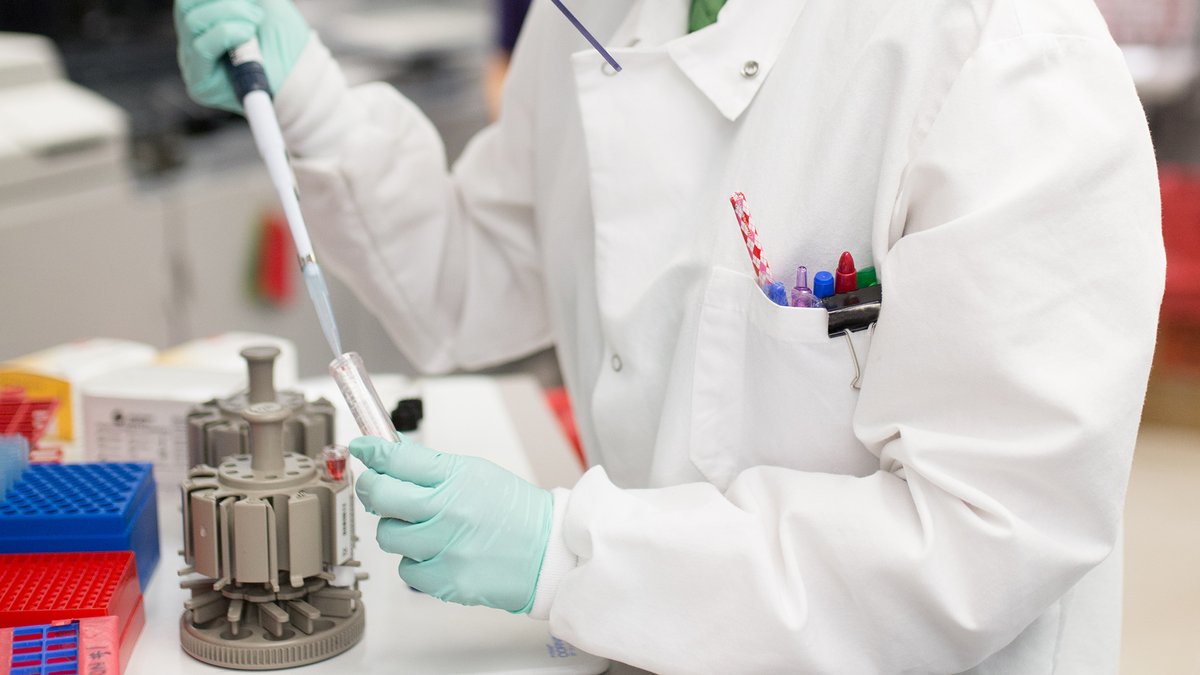
UNC Medical Center Testing Up To 2,000 Per Day Despite National ShortagesIn the very early stages of the pandemic, a team at UNC Health developed deployable tests for COVID-19 at a time when there were extreme limitations on testing availability. Now, as healthcare facilities across the nation continue to face supply shortages, UNC Medical Center has the capacity to do about 2,000 COVID-19 tests a day […]
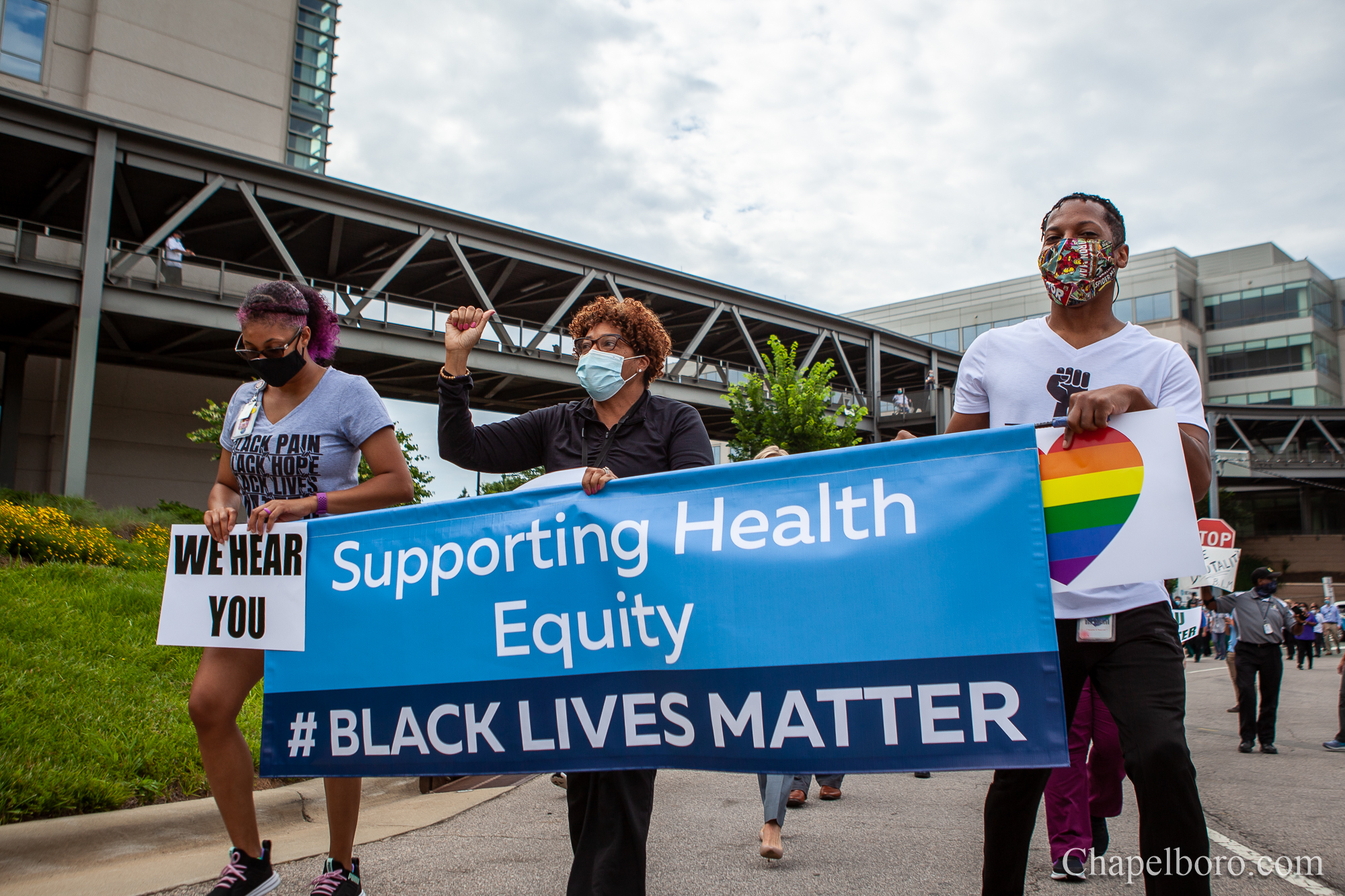
UNC Health Workers March to Show 'Commitment to Fighting Health Inequities'Hundreds of UNC Health workers gathered outside UNC Medical Centers on Tuesday morning for a march to support the Black Lives Matter movement. Wearing face masks, the hundreds of employees marched around the medical centers lot to raise awareness for health inequities in North Carolina and the United States amid the ongoing coronavirus pandemic. “We […]

UNC Health Begins to Lift Visitor Restrictions at Triangle LocationsUNC Health is easing its visitor restrictions for the first time in months, citing requirements to continue protecting patients and staff from COVID-19. The health system issued a release on Monday saying effective immediately, patients at the UNC Medical Center in Chapel Hill, UNC Hospitals in Hillsborough and the UNC REX Hospital in Raleigh are […]
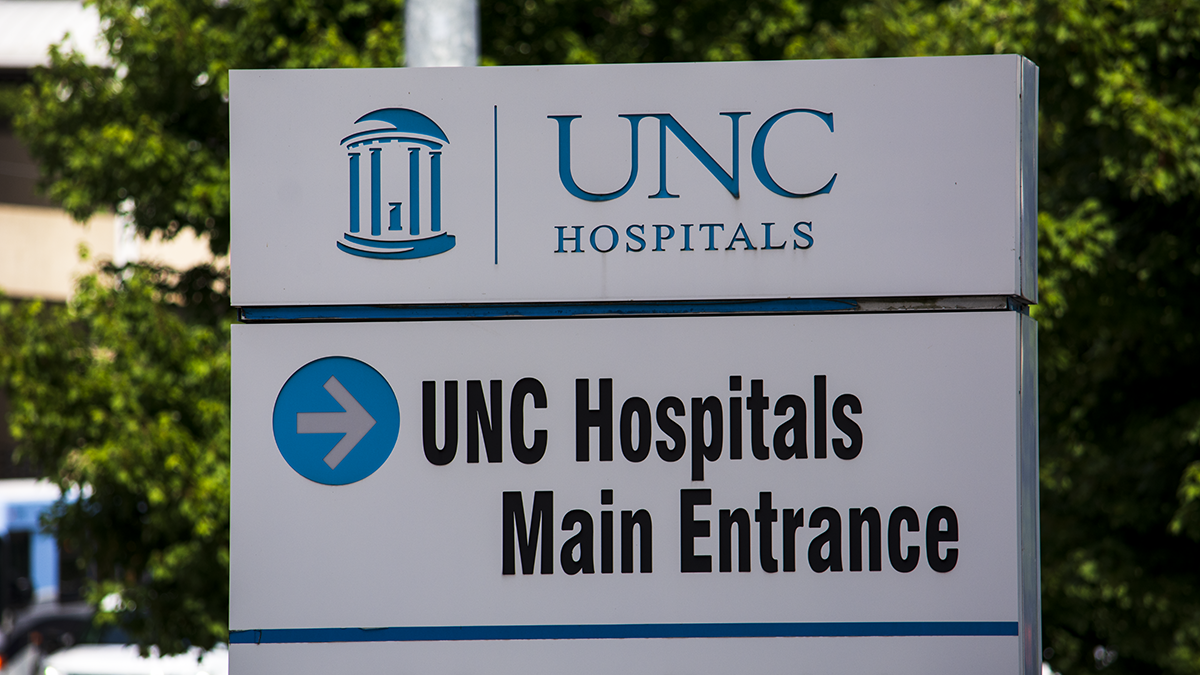
UNC Hospitals Interpreter, 29, Dies from CoronavirusAn interpreter for the UNC Medical Center in Chapel Hill recently died after contracting COVID-19. A report from WRAL said Dulce Garcia, 29, passed away on May 26 after battling the virus. The piece reported a UNC Hospitals spokesperson said the institution believes Garcia contracted COVID-19 from exposure in the community and not while on […]

Infectious Disease Experts: COVID-19 Presents Challenges to Tracing, ScreeningNorth Carolina’s trends indicate the spread of COVID-19 is being mitigated. But medical experts are warning about the challenges the state and country will face when containing the virus as they are gradually opened back up. State health officials and leaders have said there will be a ‘new normal’ for residents when the state begins to […]
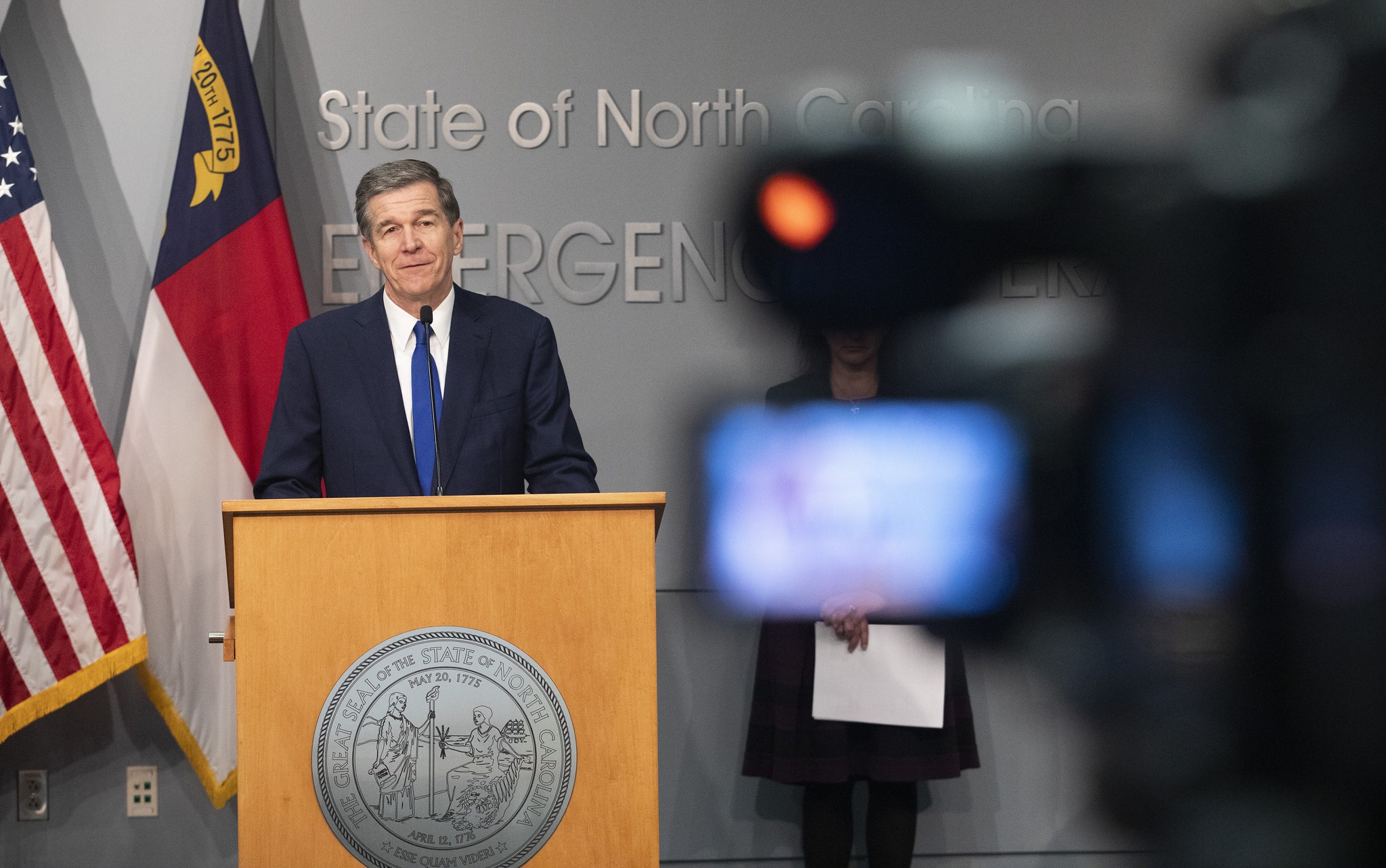
State Health Officials Announce Testing Workgroup Including UNC, Duke RepsGovernor Roy Cooper and state health officials announced the creation of a new collaboration between the government, universities and private professionals to try and increase testing for COVID-19. The announcement on Friday shared the creation of the Testing Surge Workgroup, which consists of officials from the North Carolina Department of Health and Human Services, and […]
›

